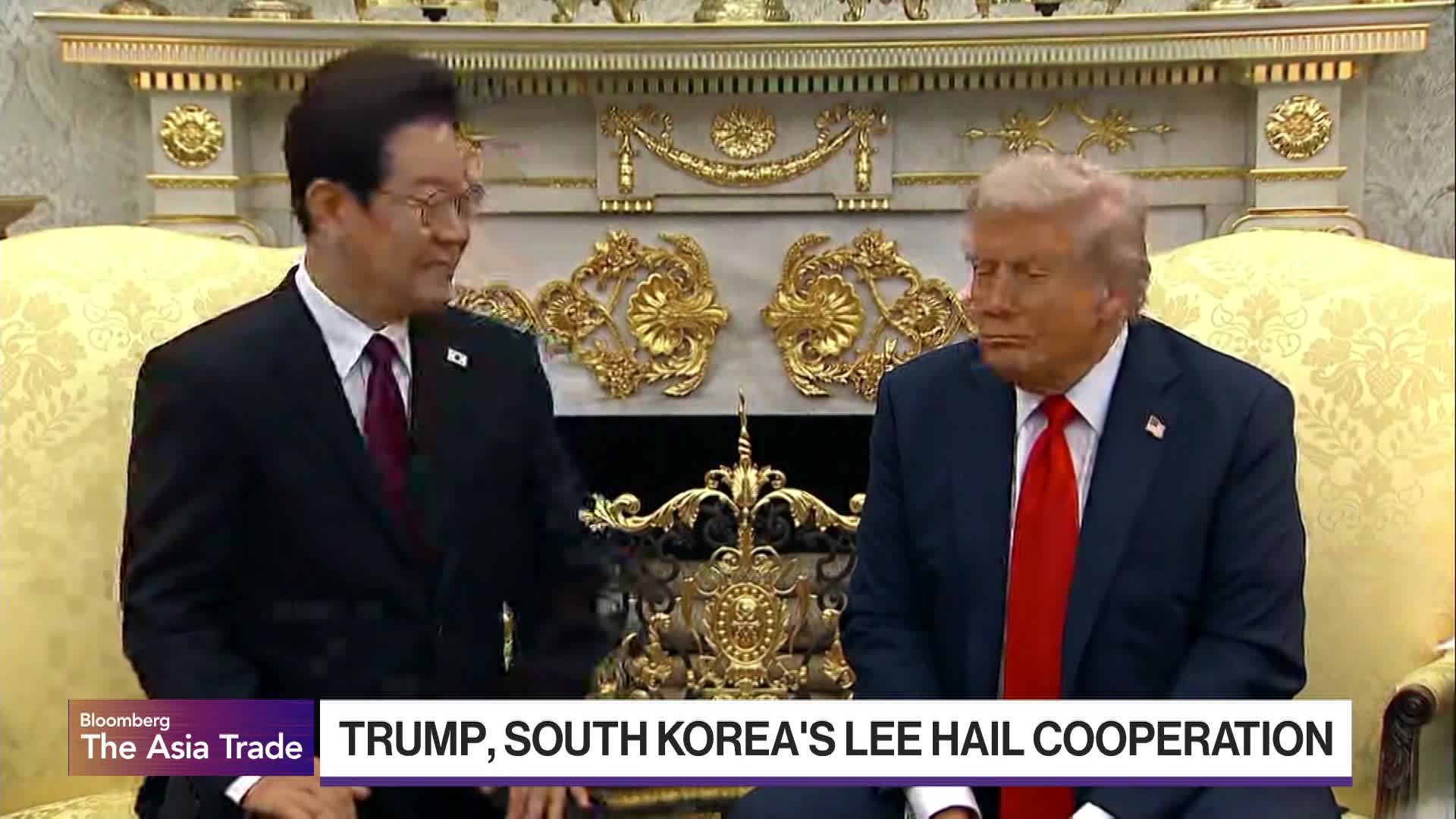South Korea Kicks Off US Deals Bonanza After Trump, Lee Meet
(Bloomberg) -- South Korean firms announced a flurry of deals with US businesses, including $50 billion in agreements with Boeing Co. and GE Aerospace, after the nations’ leaders met in-person for the first time in Washington on Monday.
The two sides had reached a last-minute trade deal at the end of July that set tariffs on US imports from South Korea at 15%, allowing Seoul to avoid the 25% rate that US President Donald Trump had threatened to impose.
Despite a charm offensive from President Lee Jae Myung, and Trump’s previous criticisms that the Asian nation has more unfair tariffs than China, that deal remains in place.

Aviation has proved the big initial winner from the meeting, with Korean Air Lines Co. planning to order more than 100 Boeing Co. jets worth $36.2 billion and inking a $13.7 billion deal with GE Aerospace for engines and maintenance services. The US shipping, energy and transport sectors are also set to get a boost from promises for future investment.
All up, South Korean firms are set to directly invest $150 billion in the US, according to the Federation of Korean Industries. That’s in addition to the $350 billion fund for projects in the US that was a centerpiece of last month’s trade agreement.
Here’s a look at key pledges following the Trump-Lee summit:
Aviation
Korean Air’s purchase agreement is the largest ever by the airline. Building on an order placed earlier this year, it’s taking 50 of Boeing’s 737 Max 10 jets, 25 of its 787 Dreamliners, 20 of its 777-9 passenger widebody models and another 8 777X freighters.
The latest deal brings Korean Air’s total Boeing orders this year to more than 150 aircraft and would more than double its existing fleet of jets made by the US planemaker. The airline’s Boeing order book will grow to 175 planes once the deal is finalized.
Jet orders have been a key feature in diplomatic efforts since Trump returned to the White House in January, with deals spanning a mix of new, rehashed and aspirational pledges aimed at narrowing trade imbalances with the US.
Energy
State-run Korea Gas Corp. signed an agreement to buy additional US-sourced liquefied natural gas, totaling up to 3.3 million tons per year, from companies including Trafigura. Imports will start from 2028 and span a decade.
From Europe to Asia, countries have been pledging to buy more American energy resources, particularly oil and natural gas, to win favor with the Trump administration in trade negotiations.
The recent bout of deals includes a pledge from the European Union to buy $750 billion of American energy imports over three years, though it faces challenges in fulfilling its promise. India has agreed to boost oil and gas imports. And Japan, South Korea and Taiwan have all said they are considering investing in a Trump-backed, $44 billion LNG export project in Alaska.
Additionally, US-based Centrus Energy Corp. signed a non-binding memorandum of understanding with Korea Hydro & Nuclear Power Co. and Posco International to explore potential investment that would support an expansion of Centrus’ uranium enrichment plant in Ohio.
Autos, Robots
Hyundai Motor Group will increase its investment in the US to $26 billion through 2028, as it seeks to expand autos, steel and robotics production.
The four-year plan marks a $5 billion increase from the $21 billion unveiled in March and includes a new steel mill in Louisiana, expanded auto production, and a robotics facility capable of building 30,000 units a year. Together, it will create 25,000 additional jobs.
The global automotive industry has been rattled by a wave of Trump tariffs that include cars, parts and steel that threaten to reshape the supply chain and raise costs for consumers. Hyundai, which entered the US market in 1986, has already invested more than $20.5 billion, it said.
Navy Ships
Samsung Heavy Industries Co. signed a strategic partnership with US-based Vigor Marine Group to provide maintenance, repair and overhaul services for US naval vessels.
The shipbuilder said it plans to expand cooperation into commercial and specialty vessels and pursue joint shipbuilding projects with US partner shipyards. It’s also considering securing additional partner shipyards.
In July, Seoul committed $150 billion to help stimulate the moribund US shipbuilding industry and South Korea is seeking to deepen its strategic relevance in the sector to position itself as an alternative to China.
(Updates to add details in fifth paragraph.)
©2025 Bloomberg L.P.





